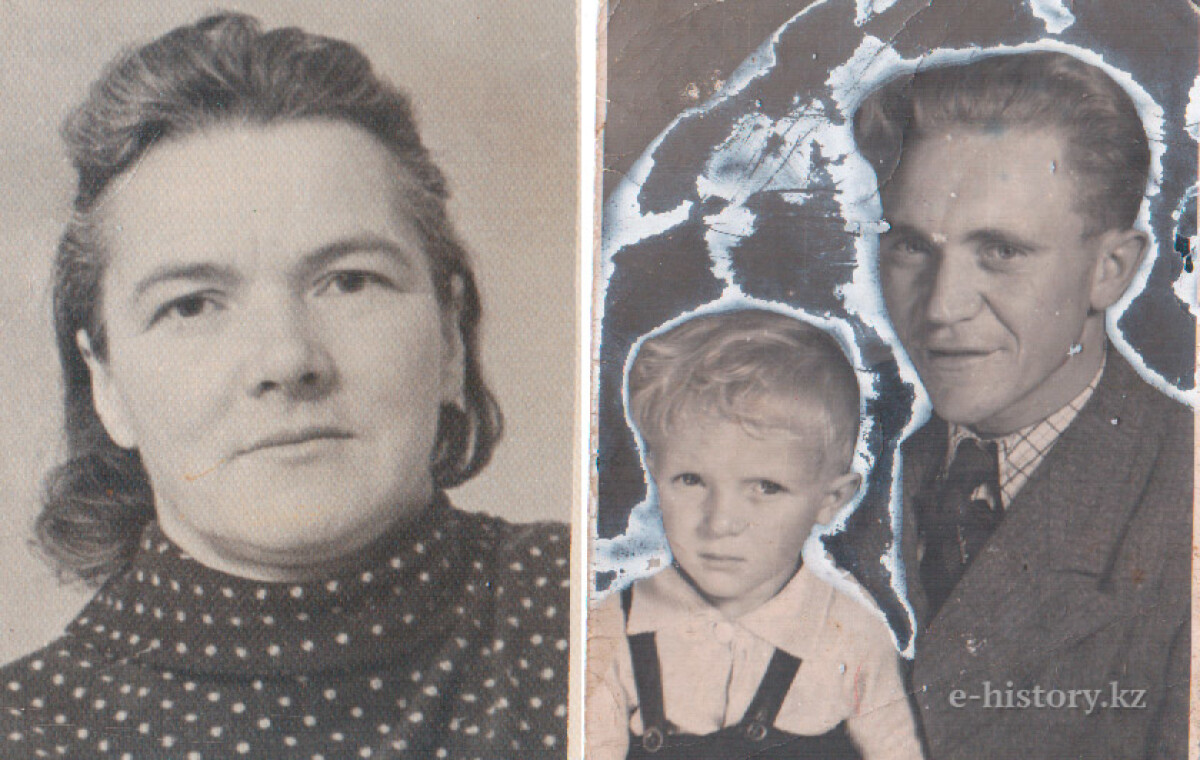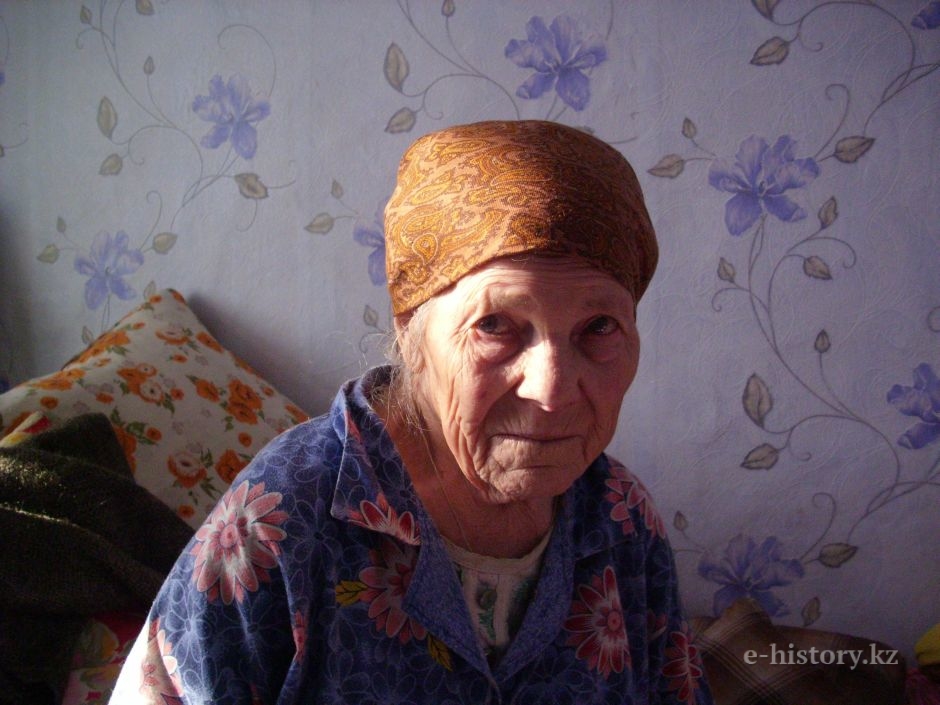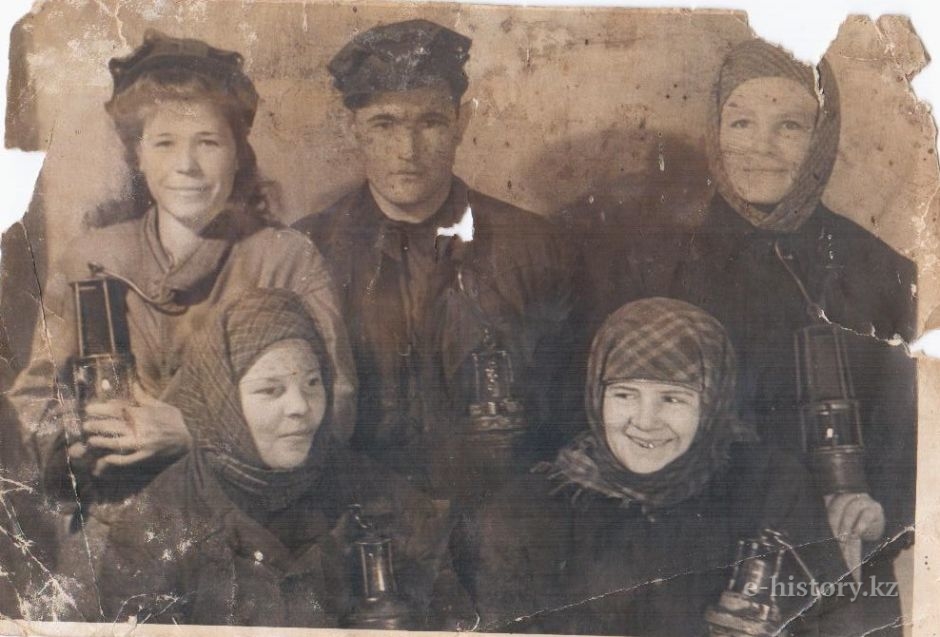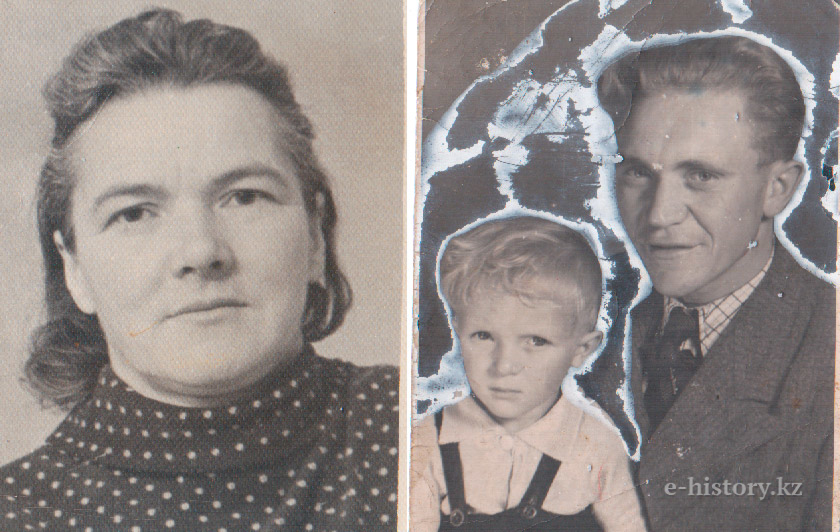
"Tick-tock," "tick-tock," — seconds chanted the rhythm of time... The time is fast. It wipes away memories. The time can even erase memory, the memory of many things but not this...
She always was not just a grandmother for me, but rather my friend and a person I wanted to emulate. Yelena Shcheritskaya is a fragile woman with a strong will, her own strictness and endless kindness. Even today she has met me with her gentle and warm smile. As it was in my childhood, she has hugged me. And again, as it was many times before, I have noticed a scar on her hand...
My granny, Yelena Shcheritskaya
"Granny, tell me this story, I know that you remember everything, please, I would like to write it down to never forget."
She took a deep breath and looked at me. I noticed something different in her eyes; it was something painful like even a memory of it hurt. I decided that again my grandmother would avoid talking about this, say that she didn’t remember anything and start discussing something else. However, suddenly she started her story and it seemed like I was not in the room with my grandmother but in the camp for war prisoners under the fire of phosphorous bombs. It seemed like I was there, in Dresden, Germany...
"We were brought there not so long ago, before this we lived in another camp... They sorted us. I was sent to a factory; my job was to fill tankers with sulphuric acid. I was short and thin with big and hungry eyes. I guess that was the reason why our shift supervisor, an old German, pity me: secretly he brought me sandwiches with sprat. He was a good person. There were different people as well... (My granny stopped and stared at the horizon. For a second it seemed to me that she wouldn’t tell anything else, but she continued).
"Those people were brought from another camp. There were around 150 prisoners. They stood close to each other and looked like ravens — wearing black shirts, all the same. My gaze was fixed on one person. The person was a woman with a baby. She pressed he son to herself looking at the Germans with terror in her eyes. One Pole, a polizei, wrested the baby, a wild scream sounded, the woman was dragged somewhere, and the German undressed the baby, put him on a big iron box, ordered the polizei to kill him and took a pistol...
At this moment, in this very second, the first bomb fell down. Never in the whole life we were so delighted about bombing. That was American aviation. The Germans hid in barracks and cellars, they kicked us out with the hope that Americans wouldn’t bomb us. We couldn’t escape as the Germans pointed their guns towards us. There was no hope. I pressed my body to a wall and prayed, prayed... Suddenly I heard a squeak, it turned out that the baby was alive! He was next to me! I do not know how but I grabbed him, wrapped in the shirt and pressed to my body. It was no fear anymore! I was not scared then...
A woman that stood close to me whispered that I should hide him in a barrack. I reached the building on all fours and hid the baby in a straw mattress. I’m not sure, whether he was used to everything or feeling threatened, but this six-month-old child didn’t make a sound, he got warm and fell asleep.
When the bombing came to an end all survivors were brought out and asked where the child was. All of us knew where he was, but no one woman said the truth, from that moment he was a son of all of us.
The days of terror began; we worried about the boy rather than about ourselves. Every day the Germans checked our barracks; the heart beat wildly during that moments. We chewed bread, wrapped it in a cloth and gave this to the baby. Each moment we spent away from the barrack seemed to be a lifetime. I brought him my sandwich and he looked at us like he understood everything. But the most important thing was that he kept silence!
His mother were brought three days later, we think she was dead, but she was alive, however, she was in a bad condition and we decided that the woman would die soon. She was beaten severely! She could only groan and call: "Vitaly," — that was the name of her son. At night I said her that the baby was there, we put them together. That was the moment when I understand the power of maternal love: she revived!
I and Vera Golubeva became friends. And the time in the camp lasted from one check in the barrack to another. We hid Vitaly carefully, but a German woman who supervised our barracks and us found the boy. However, as I said before, there were good people as well. He didn’t tell about the child anybody. She also brought bread and milk. Once she came at night, put the baby in her bag and took him away. I looked at Vera, but she was quite. Later Vera told that the German women offered her assistance — to take the baby and bring him to the house of her father and after a while send Vera to his farm to work. Otherwise, all three could be sentenced to death if the boy would be found. Vera agreed. Later Vera was indeed sent to the farm. There she saw her son: he was good-looking and in ruby-cheeked."
My granny stopped again and began to think and I was sitting in silence and failing to understand how it was possible to survive this!
"We were released in 1944, I returned to Ukraine. The life separated me from Vera. And in 1954 I moved to Kazakhstan to develop virgin lands. I settled here in Krasnaya Presnya.
After the war. My granny is the second from left
Once, on May 9, in the collective farm we planted potatoes and recalled how our soldiers and officers fought for the Victory, some talked about military feat, others kept silence and suddenly a woman’s voice sounded: "You fought on the front line. Everything was simple there. The death was the death. If you survived, thank God! And we were in a different place..." He went away. The voice seemed familiar to me; I came closer to her and saw Vera! I was scared to ask her about Vitaly — was he alive or not? Suddenly a little girl Irina entered the room. Vera laughed and sent Irina to call her father. And we talked and talked; it seemed that a thousand years won’t be enough for us to discuss everything and cry out all tears...
The Golubevs family: Vera, her husband and son Vitaly
Suddenly Vitaly went into the room. He was tall and handsome adult! He hugged me and said: "Thank you!" Since then we never were separated. Until she passed away..."
My grandmother stopped there; when her voice muted I couldn’t utter a word. I didn’t want to talk. Finally I realised why she never told me this story before. Everything is simple. This was their story. This was a story of two Ukrainian women, two destinies combined in a one by chance. This was a story of a boy who survived the Great Patriotic War and even didn’t realise that, a story of a scar on the hand. I thought that everything I read and watched about the Great Patriotic War seemed so distant and unreal to me, a boy from the village of Krasnaya Presnya. But everything is in my life: my 90-year-old granny, my teacher Galina Golubeva, a wife of Vitaly, once little Irina, now a head teacher in our school. Vera and her son Vitaly lived close to me but, unfortunately, at that time I didn’t know that they are heroes. I know it now. All this thanks to the time that stopped for a while giving me an opportunity to realise everything. I will never forget this story!
I looked at my watch: it was twenty minutes to 9 p. m. My granny was sleeping peacefully. I kissed her and whispered: "Thank you!" And the clock was still counting seconds: "Tick-tock," "tick-tock..."
Dmitry Yesimov,
grade 8 student of the Secondary School of Krasnaya Presnya,
the village of Krasnaya Presnya, Kostanai region



